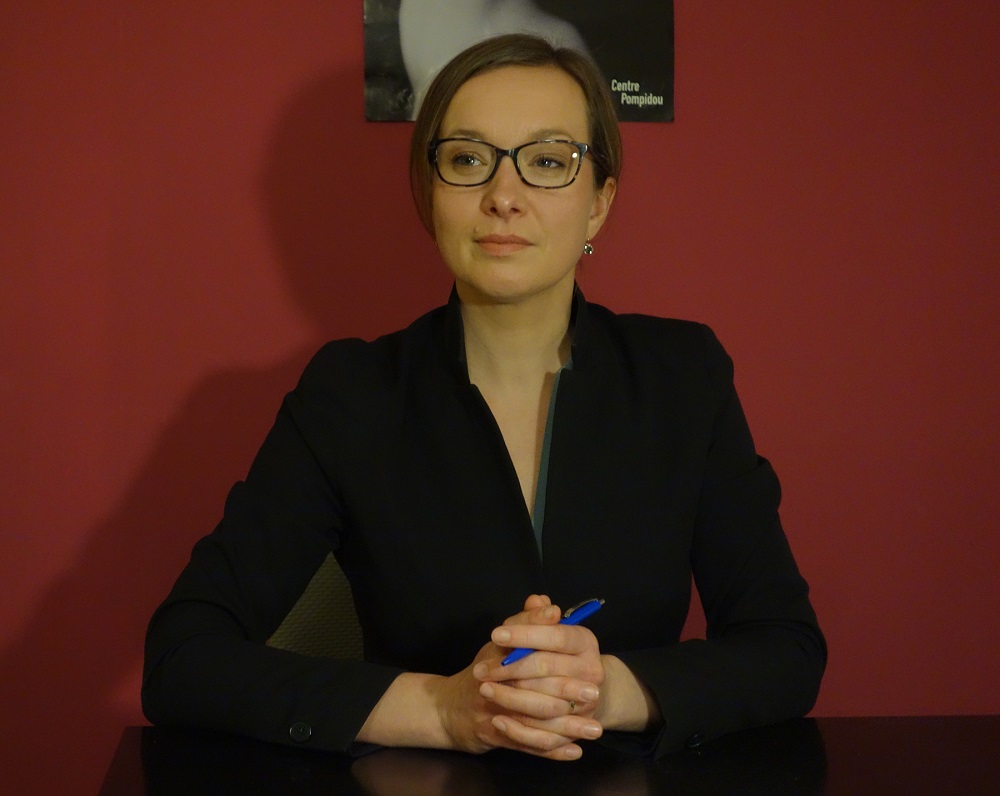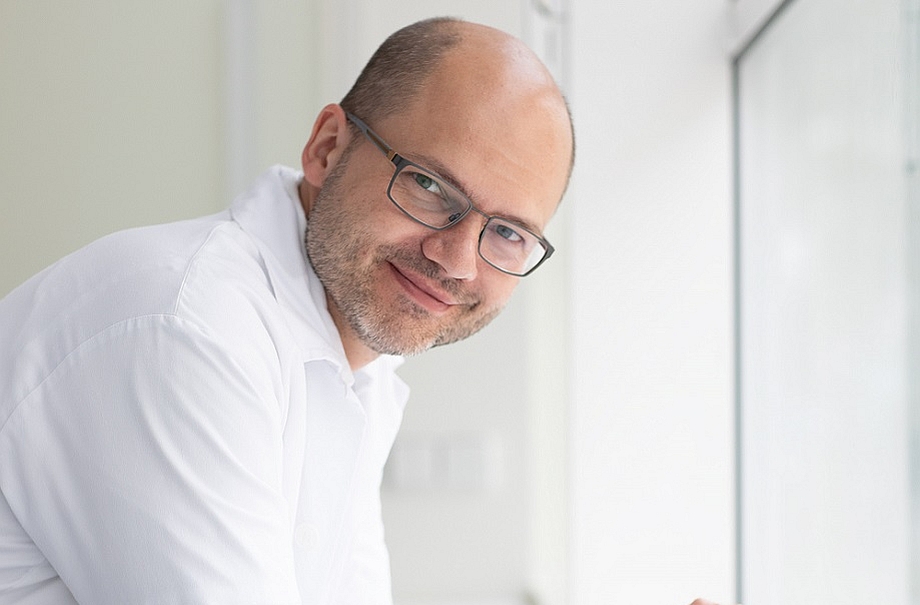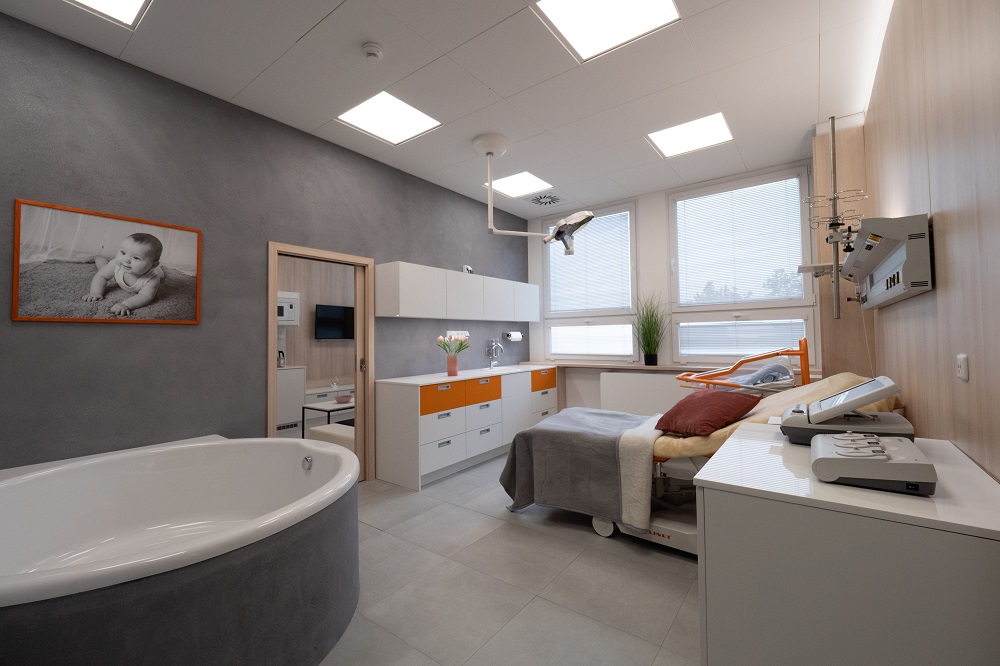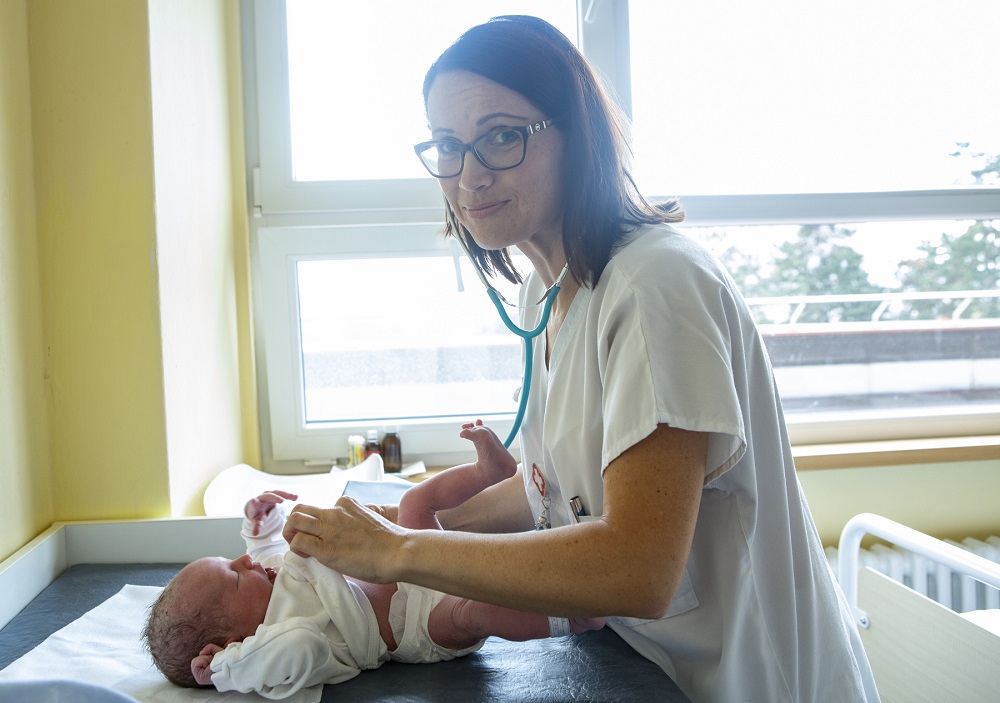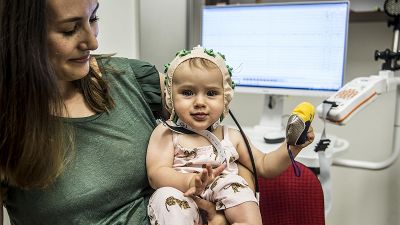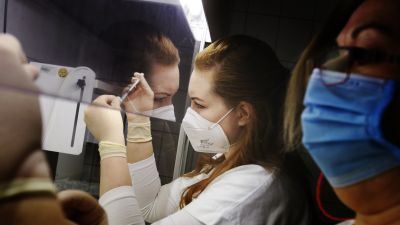The debate over whether to give birth in hospital or at home is one that has continued, with contention and controversy in the Czech Republic, for years. Sociologist Anna Pospěch Durnová wanted to get to the heart of the issue: she and colleagues from the Faculty of Social Sciences researched multiples aspects, examining how different sides were presented in the media as well as interviewing expectant mothers over why they would choose one or the other. The study found there were multiple reasons why many of mums lean towards home births instead of maternity hospitals. A lot has to do with attitude and appoach.
The key question – why some women opt for home birth – was only raised in the final phase of the study: why not earlier?
It was a logical culmination of the entire project because it was something that was always there in the background. We started by examining what the public debate itself said about Czech society, then how women’s bodies are treated or viewed in the public sphere, and finally individual women and their personal wishes. The survey, which helped draw attention to the project, is just a sliver or small part of broader research that was conducted over three years. We did an intensive analysis of the debate on three levels: in the media, among experts and among individuals, and the period examined was broad, covering the last 25 years.
One thing that we realised was that the dynamics of the debate influence not only how home births are discussed in the media but how often and what we found was that mums who had given birth at home got minimal attention. We also found there was a divide between and male midwives and doulas and female midwives [Editor’s note: midwives have medical training and focus on the delivery while doulas do not and focus on the needs of the mother, offering emotional support].
On what do both sides agree?
A safe birth is paramount and both understand that emotions on the part of the expectant mother impacts the whole process. Each group works with them a little differently: groups defending patients’ rights are convinced that if you are a unhappy going into labour it won’t lead to a safe birth; by contrast, medical professionals such as midwives see emotions as a burden which have to be “overcome”. They realise that mothers have individual needs but consider those secondary to the medical task at hand and good care.
I thought the days when expectant mothers, seen almost as sick patients, had to trust and put themselves solely into the hands of their doctor, were over.
To a large extent they are. Everyone agrees that midwives have sufficient training to handle physiological birth and that the doctor is called only in the case of a pathology. But at the same time, doctors argue that a birth can unexpectedly take a turn for the worse at any time, so they need to be on hand. So they agree to intimacy and meeting personal needs but only after the safety of the mother and the child have been assured. The other side argues that those elements need to be respected from the start for a successful birth.
Do you think that many mums choose home births for that reason? The feeling they don’t have that support, as well as the way Czech maternity hospitals are presented in the media?
In our study we found that was one of the main reasons, yes.
|
In all, 647 women, who planned to have home births in 2015-2020, took part in the survey prepared by researchers from the Faculty of Social Science at Charles University and the Focus agency. The survey was part of extended research entitled The role of intimacy in the face of Czech controversy regarding home births. |
|
| Anna Pospěch Durnová, Ph. D. |
| Anna Pospěch Durnová graduated from Masaryk University in Brno and completed a doctorate at the University of Vienna. In the past she worked at the universities of Essex, Lyon and Yale. She is focused on politics, cultural sociology and scientific controversy, and has conducted research on public and health care issues as well as intimacy or privacy of the individual. She headed The role of intimacy in the face of Czech controversy regarding home births research project at the Faculty of Social Sciences at Charles University since 2018. She lives and works in Vienna. |
While many women and expectant mothers consider giving birth at home, there are plenty of reasons why many prefer to give birth in classic maternity hospitals, with safety taking precedence. That doesn't mean attitudes even at classic maternity hospitals haven't changed, as you can read below.
Eighty percent of childbirths can be managed by midwives alone
Dr. Michal Zikán, the head of the Obstetrics and Gynaecology Department, First Faculty of Medicine, Charles University and the Bulovka University Hospital in Prague, which operates alongside Bulovka’s Centre for Maternity Care, a new birthing centre opened in 2019, says that 80 percent of childbirths can be handled by midwives alone on the condition that the pregnancies were assessed as low-risk.
Professor, in your view what should doctors and other personnel be doing to help change the reputation of Czech maternity hospitals?
It’s important to be welcoming in communication and to explain clearly what is going on and why. Ninety percent of complaints from expecting mothers are over how they were treated. Czech maternity hospitals need to cultivate better communication with expectant mothers with low-risk pregnancies. It isn’t easy, it is not a case of just handing them a set of instructions. The most basic condition to succeed, for both the client as well as personnel, is compassionate communication. You can’t expect a mother suffering pain in labour to willingly cooperate, especially if a highly difficult procedure is required, if she doesn’t know why it is needed or it appears unessential.
What are differences in approach by personnel in the classic maternity hospital at Bulovka and the Centre for Maternity Care?
The change was organisational: it doesn’t mean they are two separately-run clinics. The Centre for Maternity Care serves as a flagship to show that we are changing our approach to pregnant women and expecting mothers. If you can correctly determine that a pregnancy low-risk, it is clear the birth can be managed by a midwife alone. We of course knew that even before the new centre was created but the project allowed us to standardise care with clear directives at our maternity ward, while relying on the talents of all of our midwives.
So if a future mother registers with your maternity hospital and is determined to be low-risk, she will automatically be placed at the Centre for Maternity Care?
Correct. While giving birth, she will automatically be cared for by a midwife who will call a doctor only in the event of growing risk or if a pathology appears.
Women often feel that midwives are more sensitive in handling births than doctors. Why is that?
For one thing, obstetricians feel tremendous pressure not to make a mistake. Medical personnel have the tendency to intervene more and to move things along, to avoid any unexpected problems. When we try to facilitate a birth by providing oxytocin, for example, that can be fine for one mother but not the next and can lead to injury or to giving birth differently than the expectant mum had hoped, in other words by caesarean. It has been shown that in cases that are low-risk, midwives have more proper respect for the natural tempo of the process and can rely on non-pharmacological methods to ease giving birth.
If we considered all the data, it would show that the majority of pregnancies – up to 80 percent – are low-risk and that in such cases no extra measures are needed. Interventional methods are used where health care workers don’t have the latest data and aren’t aware that an alternative approach could be considered. Some things are done simply because that is how they were always done, for example, the application of enemas.
So greater edification on the part of health care professionals would help?
Definitely, not only about new knowledge and means of communication with patients but also legal knowledge. All of us in health care have the constant feeling we are responsible for every decision by our patient or client but that is not the case. Our job is to provide clear and sufficient information on the basis of which the client can decide. I may not like how someone decides but I have to respect their decision. This is an area where conflict arises.
Aren’t you worried that such an approach could lead to lawsuits?
Some of my colleagues are but I am not. The risk of such a lawsuit is minimised but properly documenting that the patients was informed about all the aspects [and about potential dangers]. That is my responsibility as a doctor: to clearly inform the client about possible approaches or steps and not to push her into one that I consider the best.
Are there any areas in your field that, in your view, deserve greater attention?
We have very robust data on induced labour, where we know that a woman should not miss her pregnancy due date by more than two weeks. Placenta has a limited period after which it doesn’t work as well as it should. After the fourteenth day overdue, the risk it will completely stop functioning goes up. If you are 40 or over, this risk goes up even earlier, right after the date set. Yet many pregnant women ignore our recommendations in this respect and that takes us right to where we started: the need to communicate openly person to person, explaining precisely why a step is important and what the ramifications are.
| Professor Michal Zikán |
| Michal Zikán has headed the Obstetrics and Gynaecology Clinic, First Faculty of Medicine, Charles University and the Bulovka University Hospital in Prague since 2017, where he helped found the flagship Centre for Maternity Care, where births are overseen by midwives as opposed to doctors, barring unexpected developments or an emergency. Professionally, Zikán focuses primarily on oncology and related issues. |



